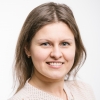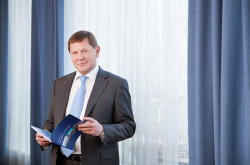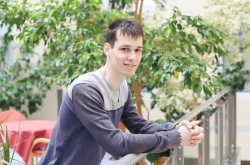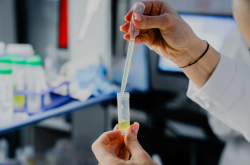How did ITMO start collaboration with University of Oslo?
Andrei Karsakov, engineer of eScience Research Institute: "In 2015 we presented the first results of the Institute of Translational Medicine at the Translational Medicine Conference in St. Petersburg. The interactive presentation attracted the attention of our Norwegian colleagues. Philippe Collas form University of Oslo became interested in research projects made by our Institute and then contacted us.
Norwegian researchers invited Russian specialists to participate in seminars at Norwegian University Center in St. Petersburg that aimed at increasing contacts between Russian and Norwegian researchers. Then our colleagues from Oslo visited the eScience Research Institute. At the end of summer, we were invited to a seminar in Norway."
Anna Bilyatdinova, lecturer at the High Performance Computing Department and research assistant at the eScience Research Institute: "Master's and PhD students from our research groups that work on visualization and computational biomedicine took part in the seminars in St. Petersburg. As for our colleagues from Oslo, researchers of Philippe Collas’s lab, which deals with bioinformatics, and the Faculty of Medicine, were interested in our projects. They want to focus on visualization. Philippe, for instance, appreciated the idea of application our experience to 3D visualization of genome projects."

Andrei Karsakov and Anna Bilyatdinova
What is the main goal Of eScience Research Institute’s collaboration with Philippe Collas’s team?
Andrei Karsakov: "Firstly, we want to create effective tools for analyzing results of modelling. Secondly, we plan to shorten the time needed for computation of complex mathematical models. For instance, they spend up to two weeks on particular models, which is quite long. We have extensive experience in optimizing computational processes."
What other Norwegian research teams showed interest in collaborating with ITMO?
Anna Bilyatdinova: "A research group, which studies stem cells, and specialists in the field of ophthalmology will also collaborate with us. There are various diagnostic routines in this field for analyzing visual disturbances. Norwegian specialists in medicine and ophthalmology are interested in Big Data. In collaboration with Russian colleagues, they plan work on statistical analysis and data mining in screening of clinic visits.
It is a good basis for the further projects. The experts of Institute of Translational Medicine are experienced in statistical analysis of medical data. We believe that the results of such projects can be applied to studying of hypertonia and cardiovascular diseases. The memorandum is only the first stage of our partnership with Norwegian colleagues."

Alexander Boukhanovsky
Who else contributed to this partnership apart from young researchers?
Anna Bilyatdinova: "Alexander Boukhanovsky, head of the High Performance Computing Department, contributed a lot. Our colleagues from different medical centers, including Federal Almazov North-West Medical Research Centre, also took part in the meeting. Together with specialists form Almazov’s centerwe develop Institute of Translational Medicine and Computational Biomedicine Master’s Program."
What are ITMO’s top priorities in this Russian-Norwegian collaboration?
Anna Bilyatdinova: "We are going to create interdisciplinary international research groups, publish articles in most cited scientific journals and organize joint educational programs for Master’s and PhD students. We also think about PhD research projects. The next step, an internship for PhD students, will be launched at the beginning of this year. We will probably create a double degree program, as well. The main activities will start in March."

University of Oslo <Photo credit depositphotos.com>
Why do Norwegian researchers aspire to collaborate with Russians?
Andrei Karsakov: "Actually, we are not the first ones with whom our colleagues tried to collaborate. Yet, in most cases they had problems with communication. That is why they were happy to find such a partner as our non-classical university. The results of ITMO’s research projects are open and transparent. We try to share them with society by explaining difficult things in simple terms. We participate in various conferences and present our achievements. It gives us an opportunity to make contacts with other universities and business sector."
Anna Bilyatdinova: "Our colleagues were surprised to meet young and enthusiastic researchers who speak English fluently and are versed in modern scientific trends."
Andrei Karsakov: "Russia is a significant partner in many fields, which is not far from Norway. Not only University of Oslo, but many other Norwegian universities are interested in collaborating with ITMO, as it is a major university in Russia’s Northwestern Federal District, which focuses on applied research.






